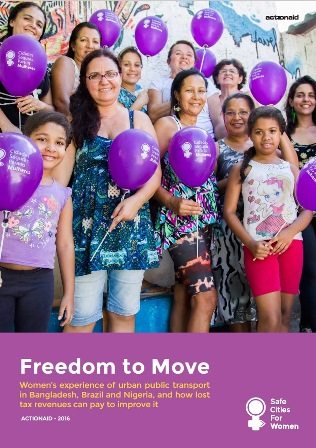Freedom to Move
Freedom to Move
Millions of people use public transport every day; it is the lifeblood of cities and the most efficient way to move people. Over half the population, however, are marginalised in these systems as the specific needs of women and girls are not catered for; leaving them vulnerable to violence and less able to fully access their rights. For women and girls worldwide, the freedom to move safely around cities is greatly restricted, whether by gender-blind planning and design of transport infrastructure or by social and cultural norms that tolerate violence towards women.
Currently, the Governments of Bangladesh, Nigeria and Brazil are failing to provide safe, secure and reliable services for women and girls. Safe public transportation systems are a necessary prerequisite for women and girls to be able to exercise their right to freedom of movement and their right to enjoy and use their cities’ services without the threat of sexual violence or harassment. This report looks at the quality of public transport provision for women and girls across three major cities: Dhaka (Bangladesh), Abuja (Nigeria) and São Paulo (Brazil). The report analyses the issue of women’s security on public transportation and offers solutions for bus systems which facilitate women’s freedom to move.
